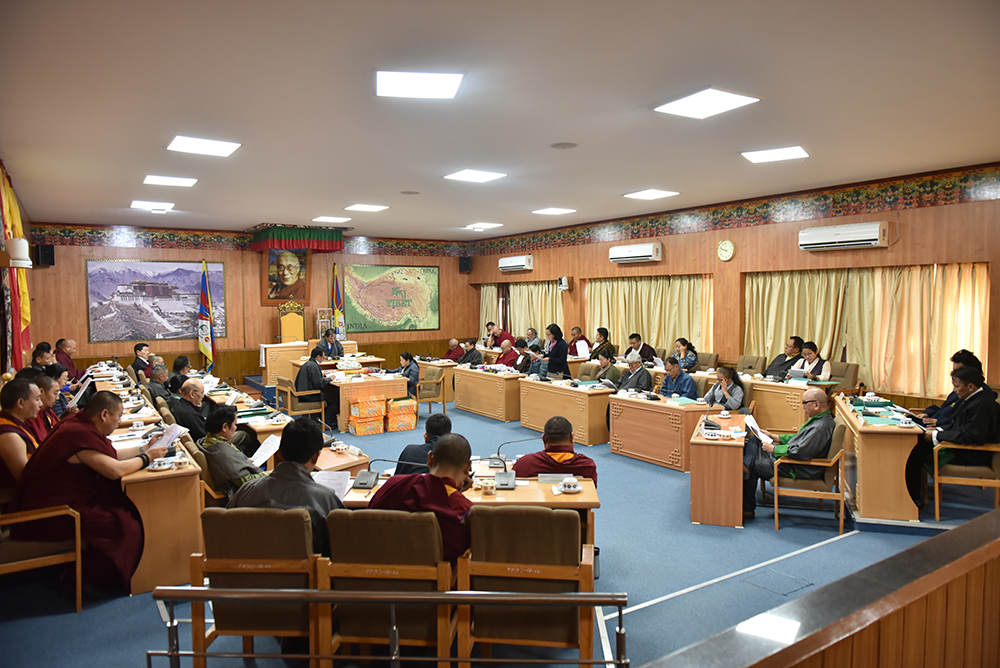(TibetanReview.net, Mar25’21) – The Tibetan Parliament in Exile (TPiE) has on Mar 25 morning voted to remove the entire panel of the Tibetan Supreme Justice Commission, leaving the Central Tibetan Administration without a judicial head for the time being. This was an outright removal ((pho-gyur), not an impeachment, so there will be no hearing of the justice commissioners.
The members voted 31 in favour of the motion for removal and 10 against, with four absentees, which is just above the required minimum of two-third majority of the overall strength of the parliament.
The motion was introduced by Deputy Speaker Acharya Yeshe Phuntsok and spoken at length by Speaker Pema Jungney.
The ground for the dismissal was that the three Justice commissioners – Chief Justice Commissioner Dagpo Sonam Norbu, and Justice commissioners Tenzin Lungtok and Karma Damdul – had violated the Charter of Tibetans in Exile by taking suo moto action against the TPiE for failing to hold its Sep 2020 session as mandated by the Charter itself.
The TPiE’s contention was that the Supreme Justice Commission had no jurisdiction over it; that it was audacious in assuming a jurisdiction it did not have. The latter had not only dismissed this claim as not correct but also taken limited action against members of the Standing Committee of the TPiE who had taken the decision not to hold the session by citing Covid-19 restrictions.
The justice commission had pointed out that an online session of the TPiE could have been held in Sep 2020, giving examples where such sessions had been held elsewhere. But the Speaker contended that the rules did not provide for it and that physical presence was vital.
Reading out the relevant provisions of the Charter of Tibetans in Exile, Speaker Jungney claimed that the Supreme Justice Commission could assume jurisdiction in cases only if it had been specifically approached by a party, which was absent in the matter at issue.
At least two members of the TPiE felt that removing the entire members of the apex judiciary for the stated grounds was drastic, all the more because of the lack of legal clarity on matters at issue and its possible impact on Tibetan society. They appeared to suggest something like a unanimous censure motion as a more appropriate response.
Suo moto action is a well-known principle of judicial cognizance of cases especially in India where courts have, in an expansive interpretation of approach, acted on matters coming to its knowledge, including from newspaper reports, if they are felt to be important or urgent enough to warrant such action.




